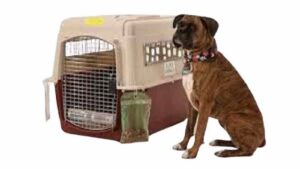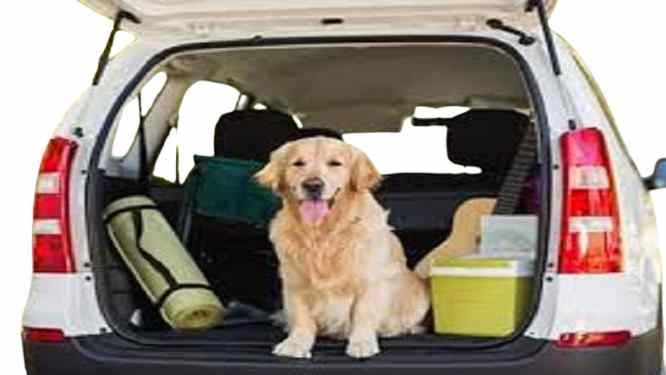Traveling with pets can be a complex process, particularly when it involves international travel. The Animal and Plant Health Inspection Service (APHIS) plays a crucial role in ensuring that pets are transported safely and in compliance with international regulations. This comprehensive guide will walk you through everything you need to know about APHIS pet travel, making your journey smoother and less stressful.
What is APHIS and Why is It Important for Pet Travel?
APHIS is a division of the US Branch of Horticulture (USDA) liable for guaranteeing the wellbeing and security of animals and plants during homegrown and global travel. With regards to pet travel, APHIS guarantees consistence with unfamiliar creature import guidelines, forestalling the spread of sicknesses and guaranteeing the prosperity of your pet.
Understanding APHIS Pet Travel Certification
The Role of Health Certificates
A urgent report expected for global pet travel is the USDA-certify wellbeing testament. This endorsement affirms that your pet is solid, state-of-the-art on inoculations, and meets the import necessities of your objective country. The testament should be finished by a USDA-licensed veterinarian and embraced by APHIS.
Step-by-Step Process for Obtaining a Health Certificate
- Research Destination Requirements: Different countries have varying requirements for pet entry. Check the APHIS Pet Travel Website to identify the specific needs of your destination.
- Schedule a Veterinary Appointment: Visit a USDA-accredited veterinarian to examine your pet and issue the health certificate.
- Submit the Certificate for Endorsement: Mail or electronically submit the health certificate to your nearest APHIS office for endorsement. Ensure that all supporting documents, such as rabies vaccination certificates, are included.
- Plan Ahead: The endorsement process can take several days, so plan your travel timeline accordingly.
Key Requirements for APHIS Pet Travel
Vaccination Requirements
Most nations expect pets to be immunized against rabies and different infections. A few nations likewise require extra inoculations or medicines, like tapeworm counteraction. It’s imperative to audit the particular necessities of your objective well ahead of time.
Microchipping
Many countries mandate that pets be microchipped before travel. Ensure the microchip meets international standards and is implanted before vaccinations are administered.
Quarantine Regulations
Some destinations enforce quarantine periods for incoming pets. Familiarize yourself with these requirements to avoid unexpected delays or stress upon arrival.

Navigating the APHIS Pet Travel Website
The APHIS Pet Travel Website is an invaluable resource for pet owners planning international travel. It provides detailed information about the import requirements for various countries, including:
- Health certificate templates
- Vaccination and testing requirements
- Quarantine policies
Using this resource ensures that you’re fully prepared and compliant with the regulations of your destination.
Common Challenges and How to Overcome Them
Last-Minute Changes in Requirements
Regulations can change frequently. To stay updated, regularly check the APHIS Pet Travel Website and consult with your veterinarian.
Errors in Documentation
Incomplete or incorrect documentation can result in delays or denial of entry for your pet. Double-check all forms and seek guidance from APHIS if needed.
Tight Travel Timelines
Processing times for health certificates and endorsements can vary. Plan your travel well in advance to avoid last-minute issues.
Tips for a Smooth Pet Travel Experience
Plan Early
Begin preparing for your trip at least six months in advance. This timeframe allows you to meet vaccination schedules, complete testing, and address any unforeseen issues.
Invest in a Comfortable Pet Carrier
Ensure your pet’s carrier is airline-approved and provides adequate space for comfort during the journey.
Acclimate Your Pet
Familiarize your pet with the carrier and travel environment to reduce anxiety during the trip.
The Role of Pet Transport Services
If the process seems overwhelming, consider hiring a professional pet transport service. These experts handle all aspects of pet travel, including documentation, logistics, and compliance, ensuring a stress-free experience for you and your pet.
APHIS Pet Travel for Different Types of Animals
While canines and felines are the most well-known pets to travel, APHIS likewise gives direction to moving different sorts of creatures, like birds, reptiles, and little warm blooded animals. Each kind of creature has novel necessities and guidelines, including wellbeing checks, certificates, and now and then extra testing. It is critical to investigate these necessities completely to guarantee consistence.
Traveling with Birds
Birds often require specialized certifications due to concerns about avian diseases. Some countries have stricter regulations for bird imports, including extended quarantine periods or additional testing for diseases like Avian Influenza.
Transporting Exotic Pets
For exotic pets such as reptiles or amphibians, APHIS works closely with the U.S. Fish and Wildlife Service to ensure compliance with international laws like the Convention on International Trade in Endangered Species (CITES). Owners should ensure they have all necessary permits and certifications before traveling.
Livestock and Farm Animals
For those traveling with livestock, including horses, the APHIS Veterinary Services unit provides detailed guidance on export and import requirements. This often includes health testing, vaccinations, and facility inspections.
Health and Safety Tips for Long Flights
Hydration and Nutrition
Make sure your pet has access to water and food during the trip. Many airlines allow small water dispensers to be attached to the carrier. If your pet is on a special diet, pack enough food for the journey and a few extra days.
Exercise Before Travel
Give your pet ample time to exercise and relieve themselves before boarding. This can help reduce anxiety and discomfort during the trip.
Medication
For pets prone to anxiety or motion sickness, consult your veterinarian about safe medications to keep them calm and comfortable during the flight. Avoid over-the-counter drugs unless specifically approved by your vet.
Preparing for Emergencies During Travel
Despite careful planning, emergencies can occur. Preparing for these situations in advance can help ensure your pet’s safety and well-being.
Emergency Contact Information
Carry the contact details of a veterinarian at your destination and know how to access emergency services in the area.
First Aid Kit for Pets
Pack a basic first aid kit for your pet, including bandages, antiseptic wipes, and any prescribed medications.
Backup Documentation
Have digital and physical copies of your pet’s health certificates, vaccination records, and other important documents.
The Future of APHIS Pet Travel
With advancements in technology, APHIS is continuously improving its systems to make pet travel more efficient. Digital health certificates, real-time tracking of endorsements, and streamlined communication with airlines are just a few innovations on the horizon.
Additionally, APHIS is working to harmonize international pet travel requirements, which could reduce the complexity of traveling between certain countries.
Real-Life Stories: Successful APHIS Pet Travel Experiences
Case Study 1: Relocating with a Dog to Europe
A family moving to Germany effectively explored the APHIS pet travel process by arranging a half year ahead of time. They guaranteed their canine’s inoculations were exceptional, got the necessary wellbeing declarations, and, surprisingly, worked with a pet vehicle administration to deal with coordinated factors. Their cautious planning brought about a consistent change for their dearest pet.
Case Study 2: Exotic Pet Transport to Australia
Transporting a pet iguana to Australia required detailed coordination with APHIS and CITES. The owner obtained all necessary permits and adhered to strict biosecurity measures, ensuring a smooth journey for their unique companion.

Pet Travel Assistance Programs
Many countries and airlines now offer specialized programs to assist pet owners with travel logistics. These programs often provide valuable resources such as pre-travel checklists, concierge services, and live tracking during transit.
Educational Resources
APHIS is committed to educating pet owners about the requirements and best practices for international travel. Their website features webinars, downloadable guides, and FAQs to empower pet owners with the knowledge they need.
Collaboration with Airlines
APHIS actively collaborates with airlines to ensure that pets are transported safely and efficiently. This includes developing standardized guidelines for pet carriers, in-flight care, and handling procedures during layovers.
FAQs About APHIS Pet Travel
What Is APHIS and Its Role in Pet Travel?
APHIS, some portion of the USDA, is answerable for managing creature wellbeing and government assistance in the US. With regards to pet travel, APHIS guarantees that creatures meet the wellbeing necessities of their objective nations to forestall the spread of sicknesses. The office gives confirmations, supports, and assets to pet people voyaging locally or universally.
Which Pets Are Covered Under APHIS Regulations?
APHIS pet travel regulations typically apply to common companion animals, including:
- Dogs
- Cats
- Birds
- Ferrets
- Rabbits
However, exotic pets, livestock, and wildlife may fall under additional or different regulatory categories. If you are traveling with such animals, consult APHIS directly for detailed guidance.
What Are the General Requirements for International Pet Travel?
When traveling internationally with pets, you must meet the destination country’s specific requirements. Commonly required documents and procedures include:
- Health Certificates: Issued by an accredited veterinarian to confirm that your pet is healthy and free from contagious diseases.
- Vaccinations: Proof of rabies and other vaccinations as required by the destination country.
- Microchip Identification: Many countries require pets to be microchipped for identification purposes.
- Parasite Treatments: Documentation of external and internal parasite treatments, such as for fleas, ticks, and worms.
Each country may have additional or unique requirements. For instance, some nations enforce quarantine periods upon arrival, while others demand advanced blood tests to verify immunity.
How Do You Obtain an APHIS Health Certificate?
To obtain a health certificate endorsed by APHIS, follow these steps:
- Visit an Accredited Veterinarian: Ensure the veterinarian is accredited by APHIS to issue valid certificates.
- Get the Correct Form: The health certificate should match the destination country’s specific requirements. APHIS provides a searchable tool for determining the appropriate forms.
- Submit for Endorsement: Mail or electronically submit the completed form to your local APHIS Veterinary Services office for endorsement. Some offices offer expedited processing options.
How Long Is an APHIS Health Certificate Valid?
The validity of a health certificate depends on the destination country. Most are valid for 10 to 30 days from the date of issue. It is crucial to time your pet’s travel to fall within this window. If your journey involves multiple stops, check if additional certificates are needed.

